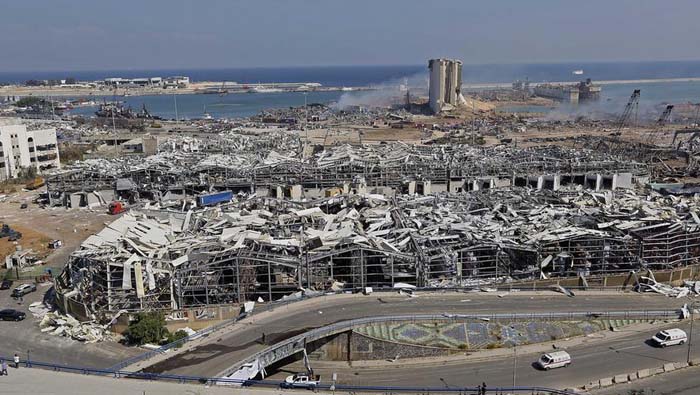
Muscat: Lebanese expatriates living and working in Oman have expressed shock and disbelief at the explosion that ripped through the port of Beirut, causing billions worth of damage, leaving at least 140 people dead and thousands more injured.
Although the cause of the tragedy is still to be determined, immediate speculation points to the detonation of 2,750 tonnes of ammonium nitrate, which exploded on 4 August, 2020, with such force that it obliterated the immediate area.
The shockwaves from the explosion left in their wake untold destruction in Beirut neighbourhoods that surrounded the port, with the impact causing windows to shatter and building structures to crack, raining debris and injuring many of those who were unfortunately caught in the area.
“The Lebanese people have had enough problems. Honestly, we are sick of all the troubles and conflicts we have been having,” said Rachid Hattoum, who lived in Qurum. “We Lebanese are peaceful people who just want to live in togetherness. Is that too much to ask for?
“The people of our country are friendly, but it is the heads of the different political parties that cause these problems,” he added. “It is said that an investigation is going to take place to find out what really happened, but I will not be surprised if there is a political reason behind this. Honestly, if we find out that there was a political motivation for this, then our country will die.”
Rami Al Joud, a resident of Al Khuwair, told Times of Oman that the home of his cousin, who lives in Beirut, had suffered significant damage from the massive blast, causing him injuries that required him to be rushed to hospital. Although he is out of danger now, Rami feels it is time for the elected government in Lebanon to either show change, or make way for one that can.
“If this government cannot deliver on the promises it made, then it should change, from top to bottom,” he said. “There is too much corruption in our government, and the politicians are only in it for themselves. If you start in the north and go southwards, our country is only 250km long, so it should not be so hard to govern.
“My cousin is thankfully out of danger now, but his house is in the area around the port, and it suffered quite a lot of damage,” added Al Joud. “People everywhere were running away from the explosion: they were very scared. My cousin had to go to the emergency room immediately, but the hospitals there were also filled with people who had been hurt in the blast.”
Ammonium nitrate, when stored safely, is a harmless chemical, but if stored improperly, begins to decay, and becomes more and more volatile. The impact of the explosion was so massive that the land on which the warehouse that stored the chemical was built has been obliterated, and replaced by a crater that quickly filled with seawater.
In its immediate aftermath, the skies above the port of Beirut quickly filled with a gigantic mushroom cloud of smoke, with the windows at the city’s international airport some 15km away shattering because of its impact. Lebanon has declared a two-week state of emergency, with security during this period the responsibility of the country’s military forces.
“Our country has only about four million people living in it and more than eight million Lebanese living overseas,” said Cherif Zouheir, another expat in Oman. “Why do you think that is? It is because our people went overseas in search of jobs and a better life, which our country was not able to provide us.
“Lebanon has faced so many problems over the past decades,” he added. “I am in touch with many of my Lebanese friends who live overseas, in places like New York, San Francisco, and Dubai, and they are all speechless. How could this have happened? When such blunders take place, it is the common man who has to suffer the most.”
The names in this article have been changed.